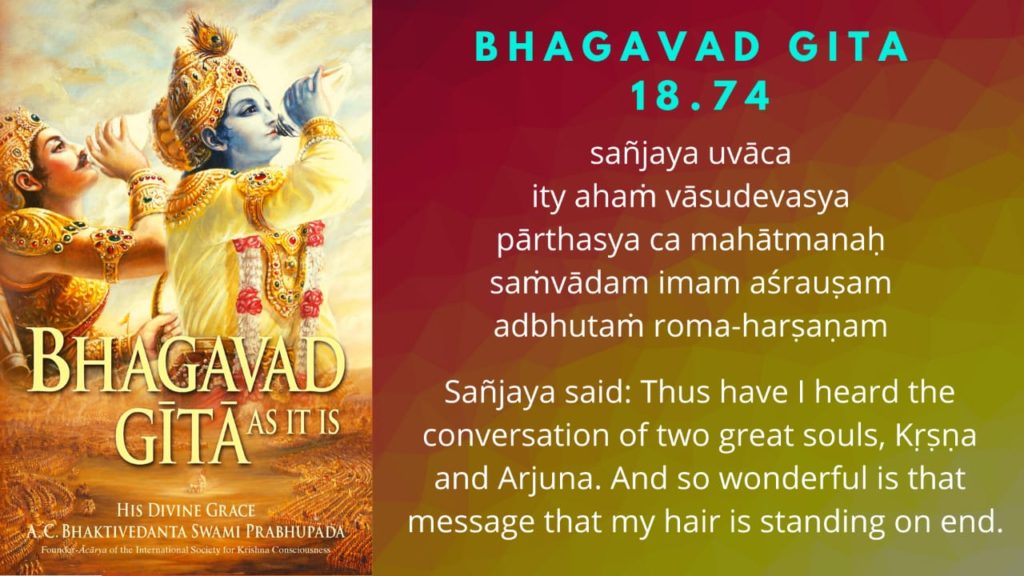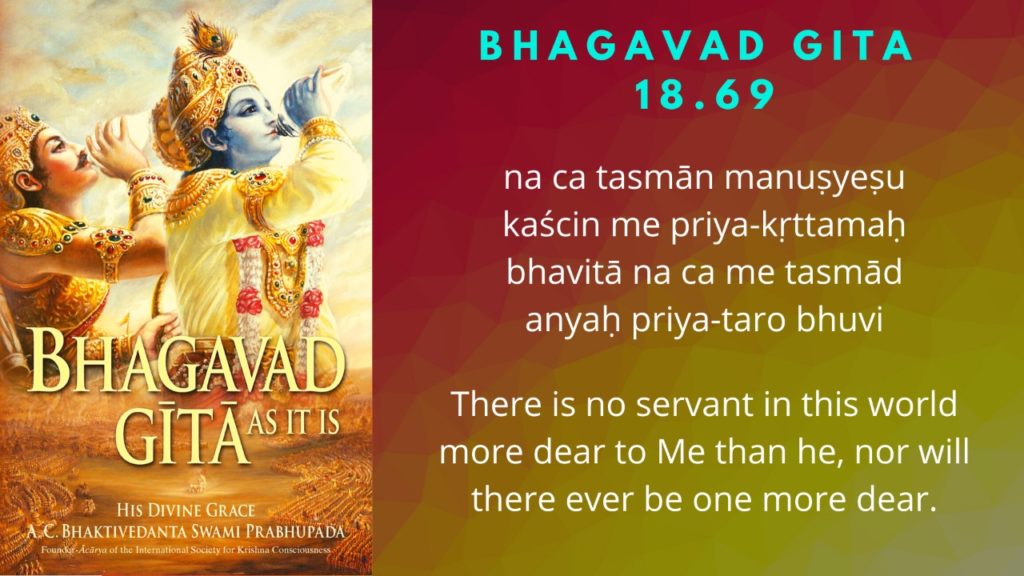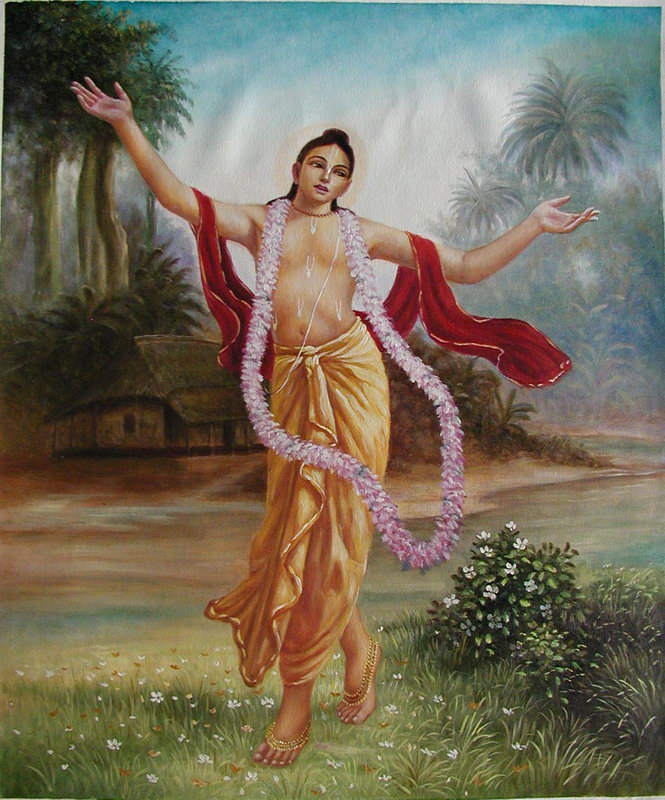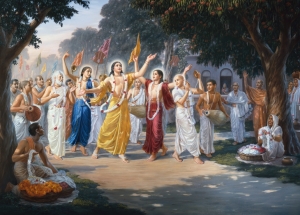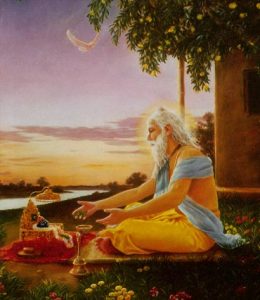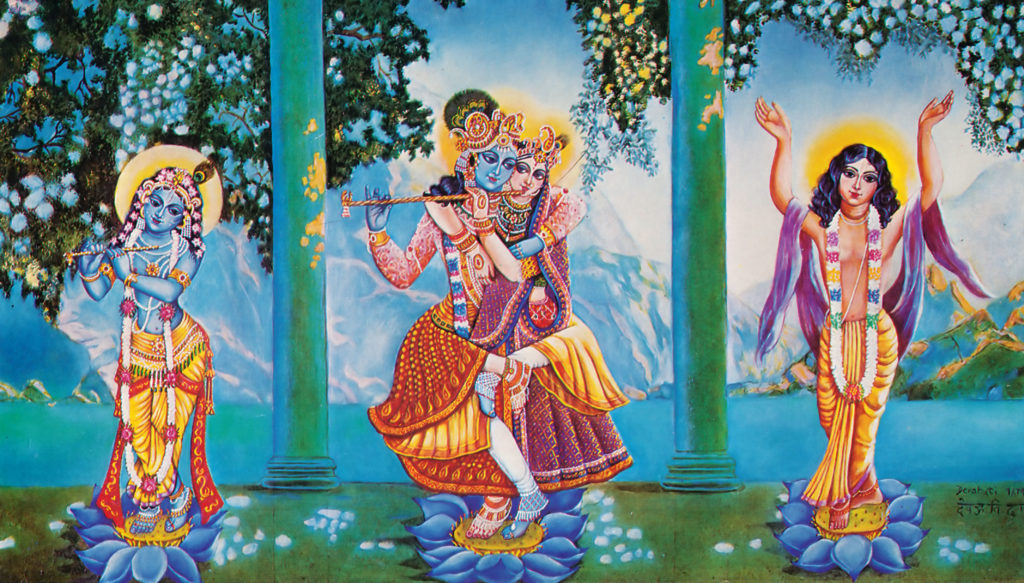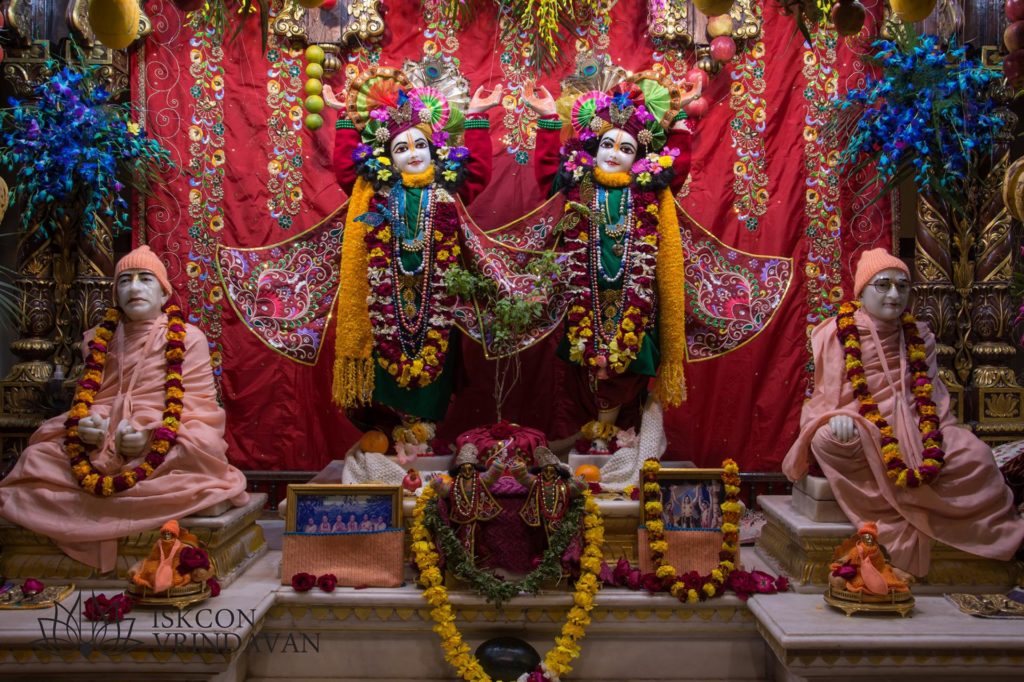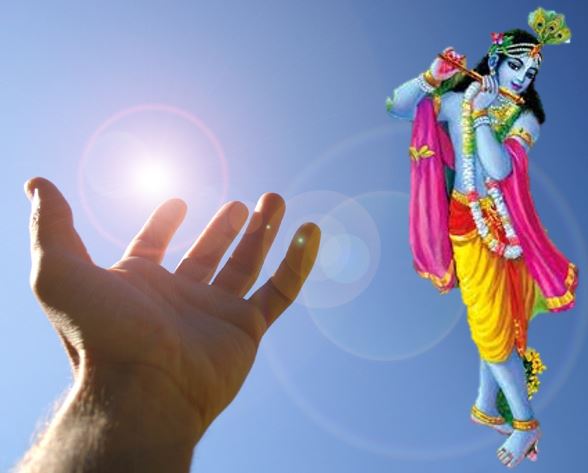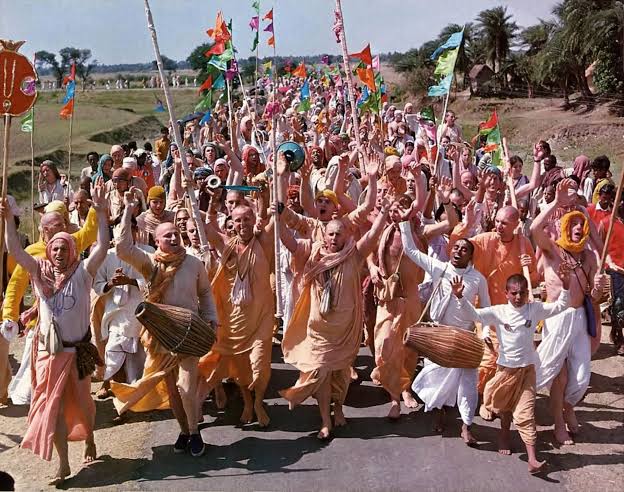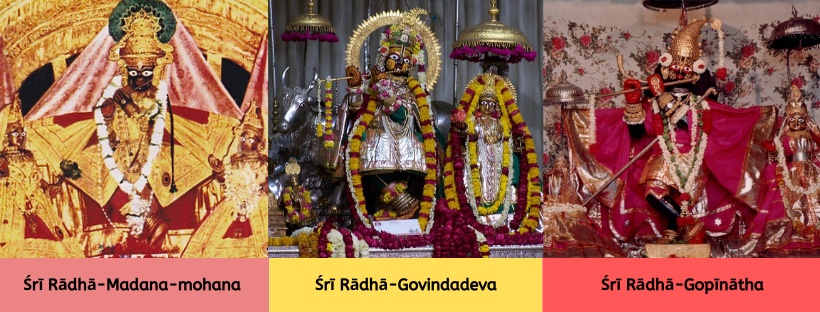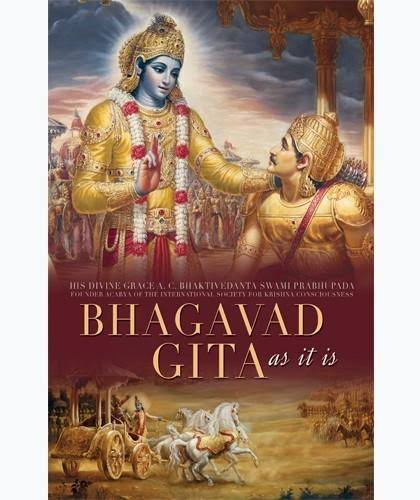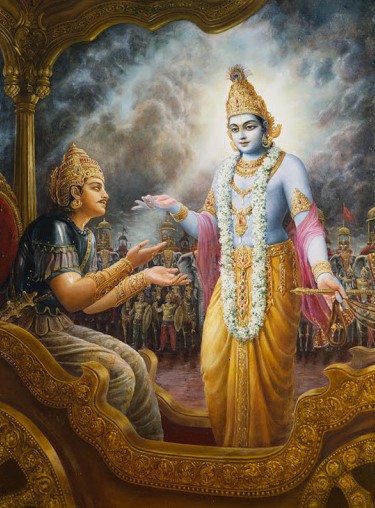
The rivalry between Karna and Arjuna is one of the highlights of Mahabharata. Even today people debate who was better among the two great warriors- pitted against each other by destiny. It’s Karna Vs Arjuna.
Karna vs Arjuna
Karna
Karna is one of the most complex characters in Mahabharata. We see his virtuous side, he was well known for his charitable nature, his word, his archery skills, a great warrior, and amongst all this, being the son of the sun-god. On the other hand, we also see a person driven blindly by pride and personal ambition. It was Karna who prompted Duryodhana that Draupadi is dragged into the assembly and then further suggested that Draupadi should be disrobed publically in the court assembly. He asked Draupadi to select another husband because, being lost by Pandavas, she was rendered a slave of Kurus. Karna hid his urge for self-glory behind his so-called gratitude and friendship with Duryodhana.
Karna refused the advice of his own father sun-god, his mother Kunti, and even Krishna. He was envious of Pandavas, especially Arjuna. Overconfident, he often bragged about his prowess which made Duryodhana even more confident of his victory, leading to the disastrous war. He refused to fight under grandfather Bhishma, boasting that he can finish up the Pandavas within five days if Bhishma would not interfere with his plans. His arrogance and pride led him to earn curses from Parshurama, a brahmana and mother earth.
Duryodhana was bereft of his fortune and duration of life because of the intricacy of ill advice given by Karṇa, Duḥśāsana and Saubala.
Arjuna
On the other side is Arjuna. He is also the son of a demigod- Indra, who is the king of all the demigods. Arjuna is one of the greatest archers and a close friend of Krishna. He was a favorite disciple of his teacher Dronacharya, who, impressed with his dedication, sincerity and humility, lovingly bestowed upon him all the blessings of military science. All the Pandavas due to their virtuous behavior were favorites not only of their elders but also of all the citizens of the Hastinapur. Arjuna used his powers to protect dharma and never fought out of arrogance or false pride. As a result, he received boons from personalities like lord Siva, Indra, fire-god, Yamaraja, Varuna and Kuvera.
Arjuna was not itching to fight with his envious and irreligious cousins who had left no trick of the trade to kill his family. Unlike Duryodhana, who saw Pandavas as his enemies, Arjuna still saw them as his brothers and relatives. He had the compassion and strength to say:
‘How can I counterattack with arrows in battle men like Bhīṣma and Droṇa, who are worthy of my worship? It would be better to live in this world by begging than to live at the cost of the lives of great souls who are my teachers.’
(BG 2.4-5)
Life seemed unfair
It may seem that life was not fair to Karna. He was born out of wedlock, abandoned by his mother, brought up (lovingly) by a chariot maker, denied the respect due as a great warrior, etc. But the same is more true for Arjuna, who suffered far more. Bereft of a father, staying with envious cousins who were always plotting to insult and kill them, and had humiliated his wife in front of the whole assembly. They had to go to the jungle for 13 years after being cheated in a gambling match. Theirs is a much longer list.
Difference in Character
The difference is how they both reacted to those so-called unfavorable circumstances. Karna was brash, overconfident, bitter and became determined to fight against what destiny was rolling out for him. Arjuna, on the other hand, remained calm during all atrocities, accepted all injustices as the will of Lord and had complete faith in Krishna.
It is said that giving good counsel to a foolish person causes the fool to become angry, just as feeding milk to a snake only increases its venomous poison. Saint Vidura was so honorable that his character was looked up to by all respectable persons. But Duryodhana was so foolish that he dared to insult Vidura. This was due to his bad association with Śakuni, his maternal uncle, as well as with his friend Karṇa, who always encouraged Duryodhana in his nefarious acts.
According to Vedic civilization, a descendant of a brāhmaṇa family should never be heavily punished. This was exemplified in Arjuna’s treatment of Aśvatthāmā. Aśvatthāmā was the son of a great brāhmaṇa, Droṇācārya, and in spite of his having committed the great offense of killing all the sleeping sons of the Pāṇḍavas, for which he was condemned even by Lord Kṛṣṇa, Arjuna excused him by not killing him because he happened to be the son of a brāhmaṇa.
Hence we can see that circumstances do not make us Krishna conscious but it is what we do in those circumstances which makes us Krishna conscious.
Who are Karna and Arjuna?
Mahabharata reveals that Karna was a demon called Dambodbhava in his previous life. He led a very sinful life and killed thousands of humans and rishi munis on the strength of a boon he received from sun-god. He was finally defeated by Nara- Narayana rishis but as he was about to be killed he took shelter of sun-god. This same demon took birth as Karna in his next birth.
Devotees like Arjuna are constant companions of the Lord, and whenever the Lord incarnates, the associate devotees incarnate in order to serve the Lord in different capacities. Arjuna is one of these devotees.
(Bg 4.5p)
So we can appreciate that Arjuna is an eternal associate of Lord Krishna, wherever Krishna’s pastimes manifest Arjuna participates in it. A soul worth taking shelter of. No wonder Krishna made Arjuna an instrument to speak Bhagavad Gita and also the hero of Mahabharata.
Srila Prabhupada gives us a very nice description of Arjuna in SB 1.12.21p and Karna in SB 1.15.16p.
We can also read a very interesting and detailed point by point comparison of Karna vs Arjuna made by HG Chaitanya Charan Prabhu here. It’s an eye-opener.
I hope we can see beyond the rivalry of Karna vs Arjuna.
All glories to Krishna’s eternal friend Arjuna.
All glories to Srila Prabhupada.
Your servant,
Giriraj dasa

